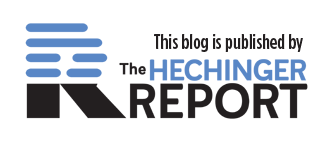Sometimes a bunch of data analysis leads to a non-numerical, but important thought. If teachers rarely get to decide what to purchase for their classrooms, be it the desks or the textbooks, then administrators might end up choosing educational software based on which vendors offer the best prices or cover the most subjects. And the buyers probably won’t have enough expertise in, say, algebra vs. chemistry vs. 4th grade reading, to know which software works well in each case.
“This top-level decision-making will only allow for so much attention to detail in terms of which technologies are best for which subject areas,” wrote Briana Pressey in a new report by the Joan Ganz Cooney Center at Sesame Workshop released in the fall of 2013.
The report analyzes five surveys that asked teachers across the nation what they think about using technology in the classroom. The five surveys were released between 2012 and 2013. Unfortunately, there are no clear answers. Some teachers like technology, some don’t. Some want more proof that it works.
Pressey says that future surveys would be more useful if they separated teacher responses by subject area, since a math teacher might have a different perspective than a reading teacher. And that would actually help district administrators make purchasing decisions.
The survey designers may be falling into the same pitfall that district administrators fall into. Asking all teachers basic questions about technology might be as silly as buying all your educational software from one vendor. Let’s get granular.



